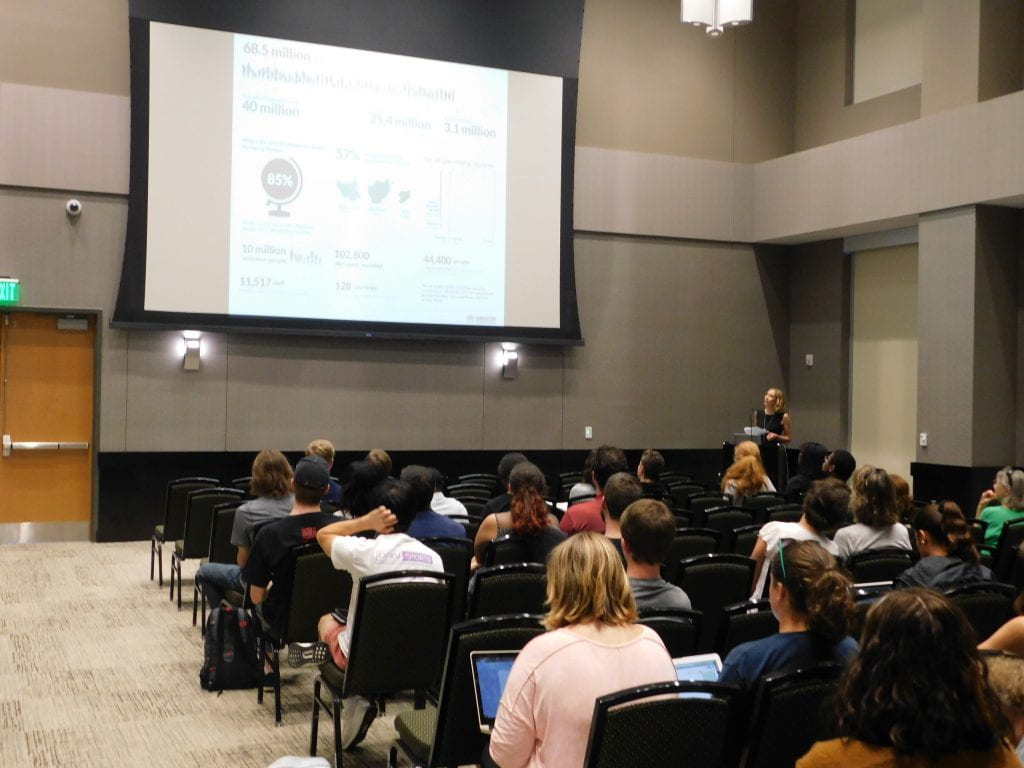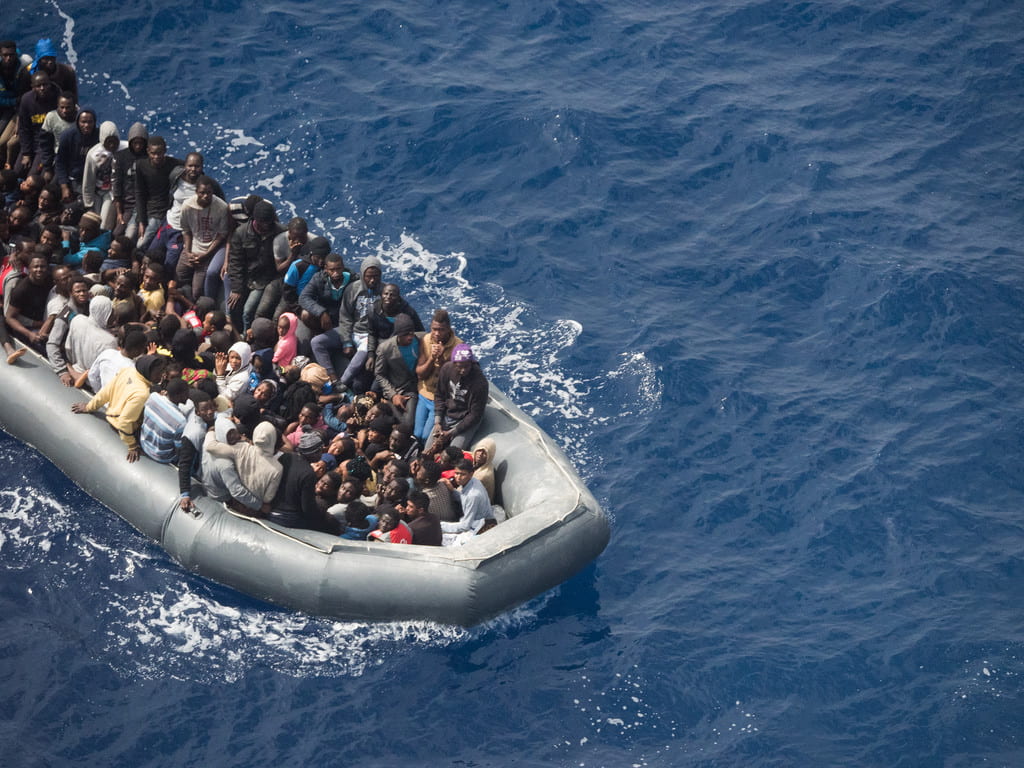On Monday, October 1, the Institute for Human Rights co-sponsored an event with local education, faith-based and law organizations, titled Addressing the Global Refugee Crisis – Part 1: Focus on Europe. Following, Dr. Tina Kempin Reuter, Director of UAB Institute for Human Rights, and April Jackson-MacLennan, J.D., from the Law Office of John Charles Bell, L.L.C., covered the legal challenges of this phenomenon from an international and national perspective, respectively.

The event began with a viewing of the documentary Non Assistance, sponsored by the Consulate General of Switzerland in Atlanta, which illustrates how sociopolitical crises in the Middle East and North Africa have galvanized thousands of people to flee their home countries, permeating the Mediterranean Sea with frail boats past occupancy, holding limited supplies. Just like its title, the film focused on the lack of assistance refugee boats receive during their treacherous journey, highlighting the tragedy on March 27, 2011 that lead to 63 Tripolitanian refugee fatalities.
Despite endearment from many Europeans citizens, like the vigilantes that aim to rescue whoever they can with their personal boats, many ships in the Mediterranean to do not strive to assist the refugees. However, in 2015 alone, Doctors Without Borders rescued over 23,000 people in the Mediterranean with a just three boats, demonstrating how non-governmental parties can be instrumental in addressing this crisis. One theory for this disparity is, since the first country of contact is responsible for reporting asylum, governments do not want to carry the burden of assisting refugees. Such an outcome begs us to ask: What steps are the European Union (EU) taking to address this issue? How would you feel being lost and abandoned at sea with just the shirt on your back? Where is the humanity?
After the film, Dr. Reuter and Mrs. Jackson-MacLennan fielded questions from the aghast, yet spirited, audience. People wanted to know what can be done; answers centered on policy change and contacting elected officials. Others asked why rescue ships are being held at the ports, leading to discussion about the legal entanglements that now restrict these boats from aiding refugees. Despite there being less rescue boats navigating the Mediterranean and a drop in migration via this route, often attributed to slowing of violence in the Syrian Civil War, there is still a need to assist refugees.

On November 12, the sequel to this three-part series, titled Addressing the Global Refugee Crisis – Part II: Focus on the United States will be held at Birmingham-Southern College and followed by the third event in early 2019, at Samford University, where action planning around this global issue will take place. Please join us for the following events whereas every voice and helping hand counts.

